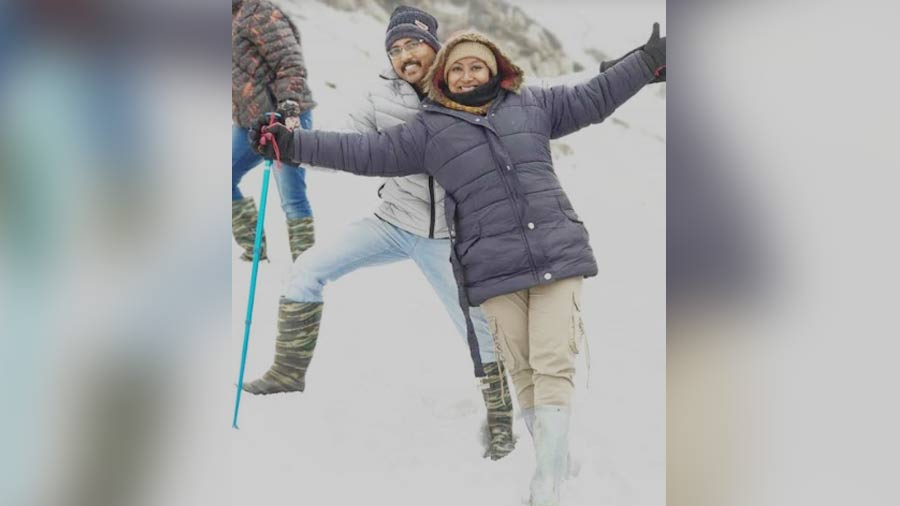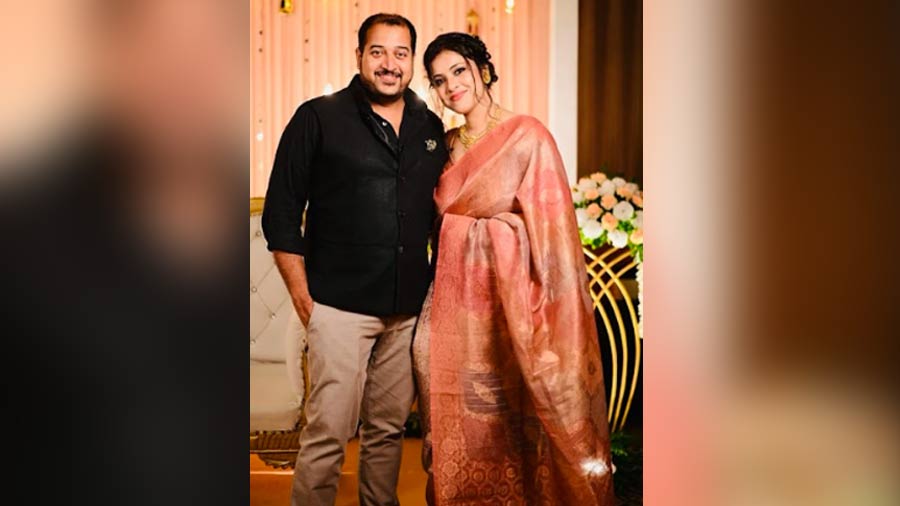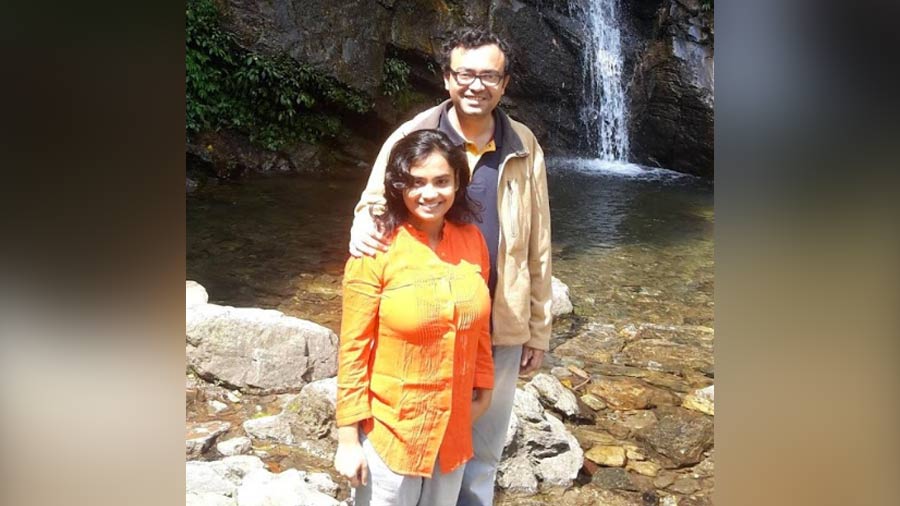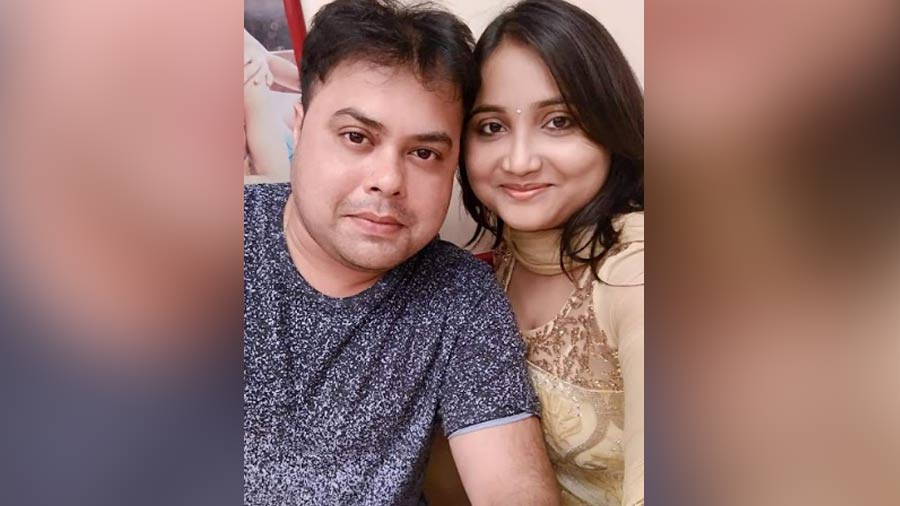First bath, first day in school, first public performance, first vacation — all clicked and posted or live-shared on social media. 100 likes! 50 comments! Sharenting, or sharing photographs, videos and anecdotes about children on digital platforms such as Facebook, Twitter, Instagram or YouTube has turned into a global trend that raises serious questions about the safety of the young ones.
My Kolkata spoke to a few parents to find out what makes them share or not share their kids’ growing-up stories online.
Pritha Bhaumik and Apalak Basu

Pritha Bhaumik
Legal professionals and young parents of a two-and-a-half-year-old, Pritha and Apalak are active on social media, but have stopped sharing moments from their son’s life online.
The couple is vigilant about cybersecurity and makes sure they follow basic safety measures while sharing content online, more so when it comes to their son.
Underlining the importance of being aware of the ills of social media, Pritha said: “I did not share photos of my son online for the first three or four months. But after that, I started posting photographs of him often. The appreciation made me happy and I cannot deny having indulged in soft competition between young mothers in the peer group or in the social circle.” Then, she decided to slow down as she found herself sharing too many pictures of her son online.
The couple now makes sure not to share images of their child frequently on social media and are careful about their privacy settings.
Ankita Dutta Sukla and Suddhasatwa Sukla

Ankita Dutta Sukla
Entrepreneur Ankita, and sales and marketing professional Suddhasatwa are doting parents of a three-and-a-half-year-old. While they are both active on social media, checking basic safety measures before posting anything about their son is a must for them.
“I share special moments from my child’s life, and the love showered on his photos and videos by friends and family adds to the joy of that moment,” Ankita said. “But I am careful about not posting anything that could embarrass him later in life or if he is inappropriately dressed.”
Ankita and Suddhasatwa are also careful about their social media privacy settings. They are strict about not sharing personal details of their son, or his location.
Soumi Roy Chowdhury and Sayan Chatterjee

Dr. Soumi Roy Chowdhury
Academician Soumi and assistant professor of paediatrics Sayan are parents of a six-year-old son and an eight-month-old daughter. They seldom share anything about their children on social media.
“I am strongly against taking photos of children when they are not fully dressed. Irrespective of the gender of the child, it is a violation of personal space and I shall not be able to justify myself when my son later asks me the rationale behind these photos. Frankly, the little that I recently got to know about sharenting, I am alarmed,” Soumi said.
Ambalika Biswas and Sandeepan Halder

Ambalika Biswas
Ambalika and Sandeepan, assistant professor of physics and consultant doctor, respectively, are parents of a five-year-old.
The couple have created an email ID in their daughter’s name to save memorable moments there, something they hope to hand over to their daughter when she turns 18.
Ambalika thinks and rethinks several times and discusses with her husband before sharing any information or photograph of her daughter on social media.
“I have shared very few photos of my daughter online. I am just not comfortable with the unchecked digital legacy of my child. I am aware of serious threats like body-image issues, incidents of crime against minors, sexualisation of children and child pornography,” Ambalika said, underlining the urgent need for workshops to help sensitise parents to the dangers of social media.
Look before you leap
The question on every parent’s mind is what amounts to oversharing. Here are a few questions parents need to ask themselves:
- What is the reason behind sharing this photo or video of your child? Is it just for the sake of sharing a moment of joy, or are social media validation and cold competitions the triggers? If the answer is the latter, then you already know when to stop
- Consent is crucial. A toddler will soon be a young adult and have access to the information shared about him/her on social networking platforms. Will he/she be embarrassed about any photo or video?
- Do you want the content to be a part of the digital legacy of your child, a footprint that is permanent?
What experts say
Sandeep Sengupta, data security expert, managing director of ISOAH Data Securities, and regional committee member at NASSCOM, shared some tips:
- Photos and videos shared on social media run the risk of being misused, morphed and used on adult sites
- While uploading any images or videos, it is important to select the correct privacy policy. Access to digital data should be controlled and contained. Profile locking is a good option to protect digital data
- Live location/geo-tagging should be avoided. Sharing post-dated photos from a vacation help ensure safety
Apoorva Bhattacharya, psychologist with health and family welfare department in Alipurduar, gave some pointers:
- It is important to ensure that the photograph posted on social media is not inappropriate in any way
- In the age of nuclear families, children are often privy to adult discussions. They absorb and observe a lot from their surroundings. Negative discussion about social media posts of other children is undesirable
